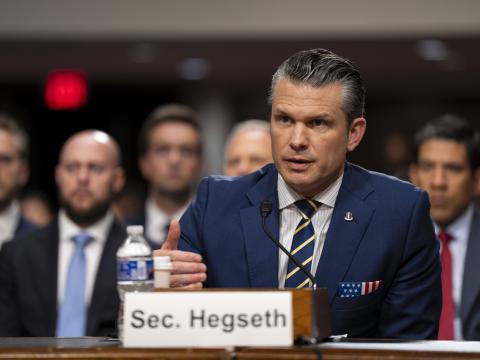THE VALUE OF FOCUS AND THE BENEFIT OF STAYING ON IT
Too often, as small business owners, we’re tempted to use our agility to jump around and try new things even before we have given our current plan a chance to succeed. This is a great time of year to escape to a quite place—some Tuesday afternoon, and pull out your 2011 goals. Take an honest look at where your team succeeded, where it failed and where you simply did not track or pursue the goals at all. Before 1 January, recalibrate this plan for 2012. (For those readers who you made these adjustments already, using the federal fiscal year, then an end-of-first quarter review is what you would call your review.)
General Dwight Eisenhower was famous for his fact gathering, disciplined consideration of options, his willingness to accept—and even solicit criticism and then finalize and commit to a plan. Once he accepted and solidified a plan, it was settled. (He even stood up to the arguments of Winston Churchill for six hours of attempted dissuasion related to the Operation Anvil, but old Ike was determined.) Yet he did not let his staunch commitments forestall future adjustments. As he is famously quoted, “Plans are worthless, but planning is everything.” He knew that if you did not enter a battle with a well thought out plan (including contingencies) you were doomed to failure. He also knew that once the battle begins, the original plan tends to go out the window. (Have any older readers met Dwight Eisenhower? Please chime in!)
It is this simultaneous holding of seemingly oxymoronic positions—yet in a harmonious manner, that made Eisenhower a leader of leaders.
When I review my own goals, I don’t get too upset if I have failed to meet them, because, how in the world could I have known what I would experience--in minute detail, prior to running into them. But I do get frustrated with myself for not having reasonable targets and making measureable progress towards them or related ones.
This is what you must do; create an environment in your business development team and with your leadership skills, to set help inspiring goals that are worthy of pursuing--ones that each member of the team can connect with. And these should have reasonable adjustments along the way in order to reach a set of refined goals as the opportunities and details unfold.
It is the fine balance between agility versus commitment to a plan that can sometimes reveal inspired leadership; too much of one or the other, spoils the entire endeavor. Finding the correct mix in your organization is the key.
Question: can you think of anyone in your professional past who exhibited this balance? What can you tell us about him or her?




Comments